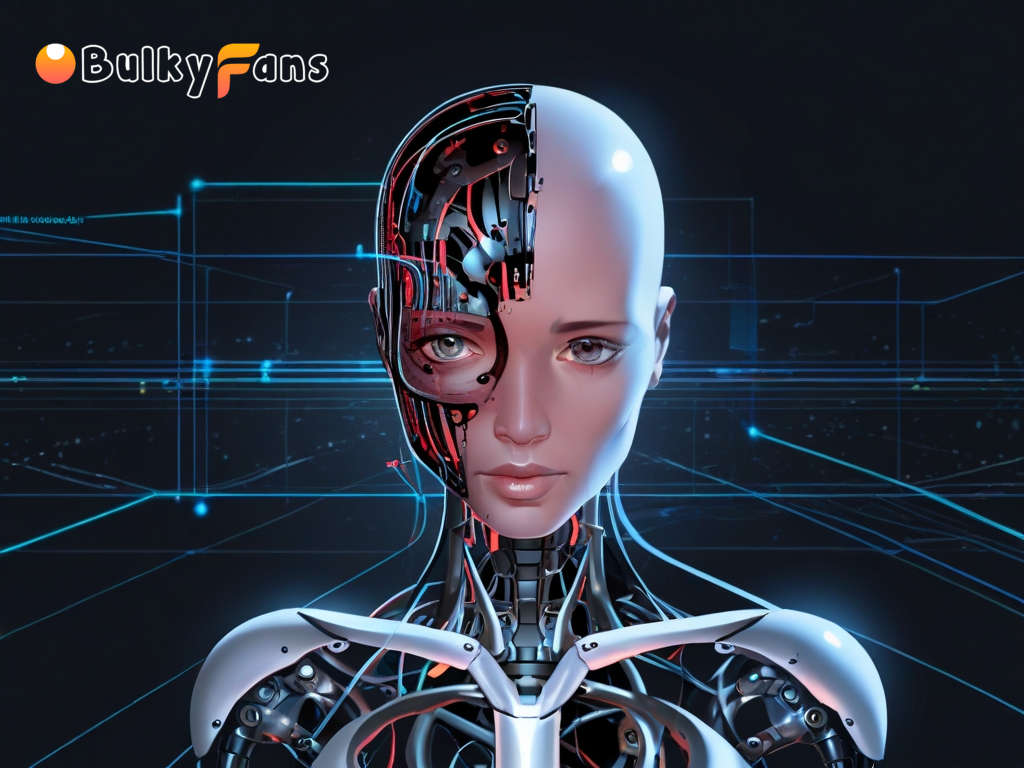
AI, or artificial intelligence term represents a technology that has recently gained popularity. Its rapid growth has caught the interest of many parties, making them understand just how significant the impact AI could have not just in their field, but around the world. So, if you want to understand more about the subject and learn what artificial intelligence is and how it is employed nowadays keep reading.
What is AI?
Artificial intelligence or AI is an area of computer science that studies the emulation of intelligent behavior in computers and refers to a wide range of technologies such as machine learning, deep learning, and many others.
Artificial intelligence represents the development of computer systems capable of doing activities that previously needed human intelligence, such as speech recognition, decision-making, and pattern recognition and today, most people use the term AI to refer to a set of machine learning-powered technologies, such as Chat GPT or computer vision, that allow machines to perform activities that were previously only performed by humans, like crafting written content, driving a car, using AI to create TikTok content, and analyzing data.

Everything to know about artificial intelligence
As the word AI gains more popularity, a greater number of people are becoming interested in this type of technology, and many studies are currently being conducted in this field. Below are some basic points you must know in order to avoid being left behind.
How does AI work?
AI refers to an extensive list of technologies that power many of the services and products we use daily and understanding how it operates might be difficult due to the range of technologies and methodologies used but to make it more understandable, let us divide the process into smaller steps:
Data collection: AI systems need an immense amount of data to learn from which is why it collects huge quantities of data such as texts, photos, videos, speech, and other types of data.
Data preprocessing: This stage selects and transforms the previously collected data into a usable format. This transformation includes deleting duplicate data, addressing missing data points, and normalizing numerical values.
Model selection: An appropriate AI model is selected based on the task or question at hand. It could range from a straightforward linear regression framework to a powerful deep neural network.
Training and Testing the AI: The previously selected models are trained on the preprocessed data. The AI learns patterns, relationships, and structures from previously acquired data before testing on new data that it has not seen before. This level assesses the AI’s ability to apply lessons learned in previous steps during training.
Placement: If the AI performs well during testing, it can be used to make predictions based on real-world data. Based on these predictions, AI systems can provide useful insights, and recommendations, or take independent actions.
Constant Learning: AI can learn from fresh data continuously; The models are regularly modified when they collect more data, obtain more information, or respond to changing environments.
AI effects on society
AI technology is developing faster than ever before and its applications are emerging every day, and it brings many benefits to both individuals and organizations such as making growing Instagram followers and creating social media content easier as well as many other benefits mentioned in the following section.
-
Reduction in human errors.
Artificial intelligence is designed to operate similarly to the human mind but with greater accuracy and precision. AI’s decisions in every stage are based on previously obtained data and when built correctly, these errors can be eliminated.
-
Uninfluenced decisions
Whether we like it or not, emotions drive our human behavior but AI, on the other hand, is free of emotions and takes a rational approach when it comes to decision-making; Artificial intelligence has the significant quality of being free of biases, allowing for more accurate decision-making.
-
Efficiency in Risky Task Performance
AI applications can be utilized in environments that are toxic to humans. AI technologies reduce the risks inherent in certain dangerous tasks and robots, for example, can perform these risky duties like sea research, and assisting in rescue operations during natural catastrophes, among others.
Q&A
What is AI
AI is a tool that operates by processing massive amounts of data and applying algorithms, or a set of rules, to recognize keywords and determine the type of assistance you require. It is programmed to think, behave, and respond similarly to the human mind.
How to use AI
To learn AI, you must first have a good foundation in computer science and a solid knowledge of a programming language, like Python. Next, study basic algorithms, followed by machine learning and data science concepts, and apply this theoretical knowledge to AI-related projects.
How to integrate AI into our daily lives
Voice assistants, picture recognition for face unlock in mobile phones, and some financial fraud detection are all examples of AI software widely used in our everyday lives.

